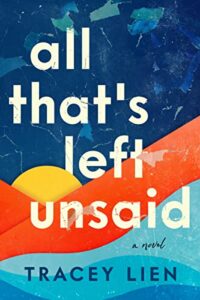The CrimeReads editors select the month’s best debut fiction.
*

Rijula Das, Small Deaths
(Amazon Crossing)
Rijula Das’ sweeping novel of sex workers and the quest for human dignity is bitterly cynical, surprisingly humorous, and astonishingly beautiful. Lalee lives and works in Calcutta’s red light district, where she barely scrapes by. The murder of a popular courtesan is a chance to note the indifference of police, but gives her an opportunity to assume the dead woman’s life and clientage. Will she lose herself in the heady world of the elite? Or will she face dangers that she could never imagine? Why was the elite sex worker murdered, and what did she know about the underworld of human trafficking? And what part in the novel’s explosive conclusion will a bumbling, erotic-fiction-writing patron play? Some novels about sex workers can feel moralistic and exploitative in their brutality; here, we have the opposite—a deeply human portrait of a wide swatch of Calcuttan society working hard to survive and preserve their dignity and community. –MO

Sarah Bonner, Her Perfect Twin
(Grand Central Publishing)
Megan and Leah are estranged identical twins. When Megan finds pictures of Leah on her husband’s phone, she is beyond furious. Leah is the kind of sister who incites jealousy: rich, famous, and free to do as she pleases. Megan knows she has to kill Leah, but when lockdown hits she has to pretend to be Leah and keep on being herself as well. –MO

Virginia Hartman, The Marsh Queen
(Gallery Books)
In this deeply emotional debut, a woman is pulled out of her life working as a nature artist at the Smithsonian and called back to her hometown in Florida, following her mother’s accident. But it’s the mystery of her father’s long-ago death that captures her imagination and drives this story forward: a strong, simmering story of family loyalty, strife, and secrets. –DM

Tracey Lien, All That’s Left Unsaid
I know I compare a lot of books to the movie Paris, Texas, but that’s just what I think of when there’s an epic emotional confrontation between two characters after a long search for answers. All That’s Left Unsaid is set in an Australian neighborhood celebrated for being a vibrant hub of refugee Vietnamese culture, and notorious for widespread drug use and gang violence. A young woman returns home to investigate the murder of her brother, a teenager who was beaten to death at a local restaurant. Traumatized by their wartime experiences and the indifference of the police, the restaurant’s patrons refuse to share what they witnessed. It’s up to Lien’s determined protagonist to answer two questions: why was her brother killed, and why didn’t anyone stop it? Her investigation soon becomes a wider effort to understand the gaps between her parents’ generation and their Australia-raised children. –MO

















